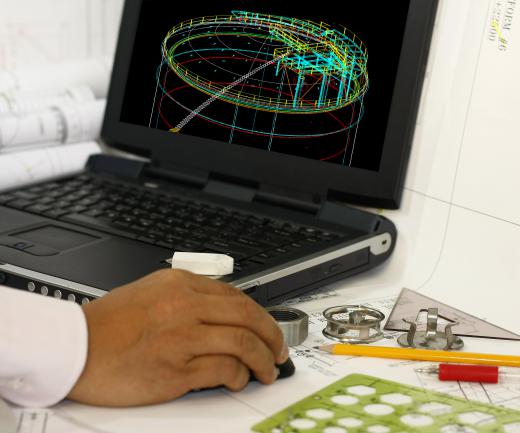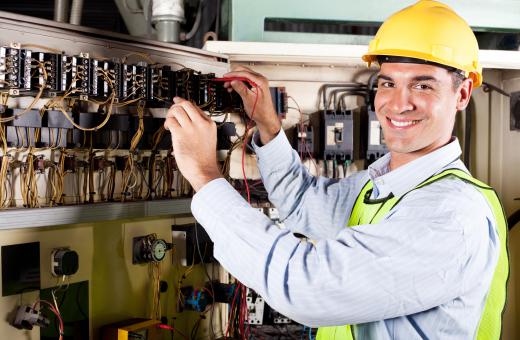What is a Junior Mechanical Engineer?
A junior mechanical engineer is a professional who performs a wide range of duties in the research and development divisions of manufacturing firms. He or she usually works with a team of other engineers and scientists to invent, design, build, and test machines and equipment. A professional creates blueprints and writes technical papers about the design and operation of new machines. Most junior mechanical engineers specialize in a certain field, such as biotechnology, industrial machinery design, consumer electronics and appliances, or automobile manufacturing.
Manufacturing plants and research institutions depend on skilled junior mechanical engineers to develop and build new tools, equipment, computers, and machines. Senior engineers typically come up with original designs and lead teams of junior engineers in fine-tuning blueprints, determining and acquiring the appropriate materials, and building prototypes. The team assembles a machine and puts it through rigorous tests to ensure its functionality, safety, efficiency, and durability. When a prototype does not work properly, the team attempts to diagnose problems and make adjustments in the design.

Extensive records and statistics are kept during the development and testing of a product. A junior mechanical engineer is responsible for drawing detailed blueprints using computer-aided drafting software and other applications, recording data about the building and testing process, and analyzing statistics after test runs. He or she may be required to create technical documents about the proper assembly, installation, and operation of new equipment. The junior mechanical engineer presents his or her final reports to senior engineers so they may be submitted to executives and patent offices.

To become a junior mechanical engineer, an individual is usually required to obtain a bachelor's degree and complete formal training. Bachelor's degree programs in mechanical engineering typically take four to five years to complete, and feature extensive math, physics, and specialized engineering courses. Graduates usually begin their careers as assistants to established junior mechanical engineers and scientists, where they have the opportunity to observe professionals in the occupation and participate in some elements of product design, development, and testing. Many new junior engineers take certification exams administered by accredited national organizations to improve their credentials and better prepare them for work in the field.

An experienced junior mechanical engineer usually has many opportunities for advancement by establishing himself or herself in a company and pursuing a master's degree. By gaining years of experience and obtaining an advanced degree, a professional can begin designing original projects and leading a team of junior engineers. Some individuals are able to become lead researchers and supervisors of entire engineering departments.
AS FEATURED ON:
AS FEATURED ON:


















Discuss this Article
Post your comments